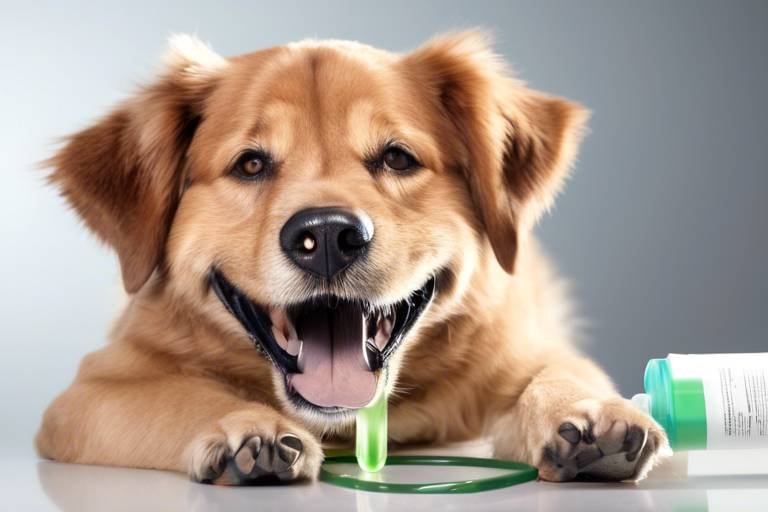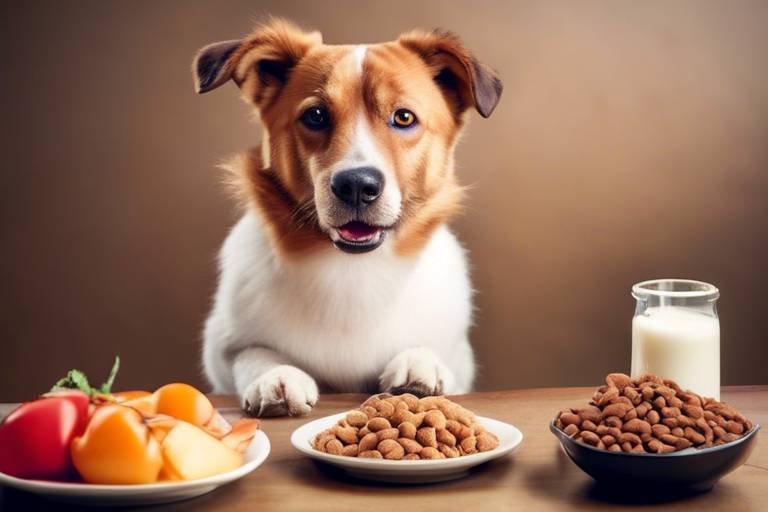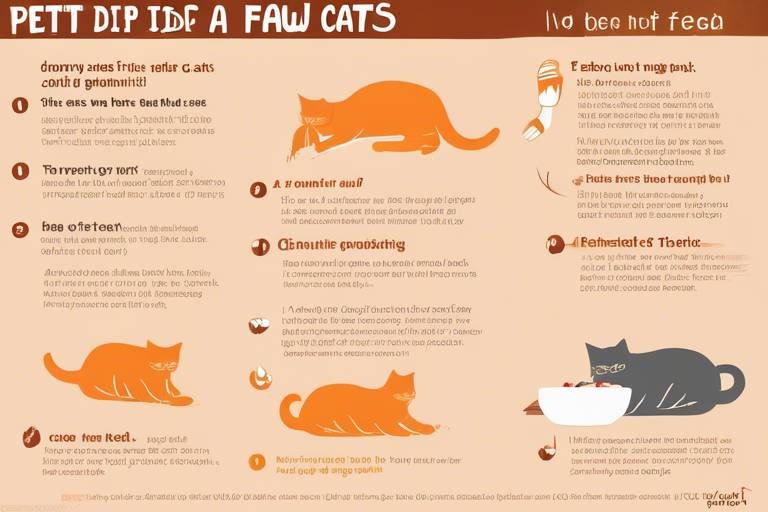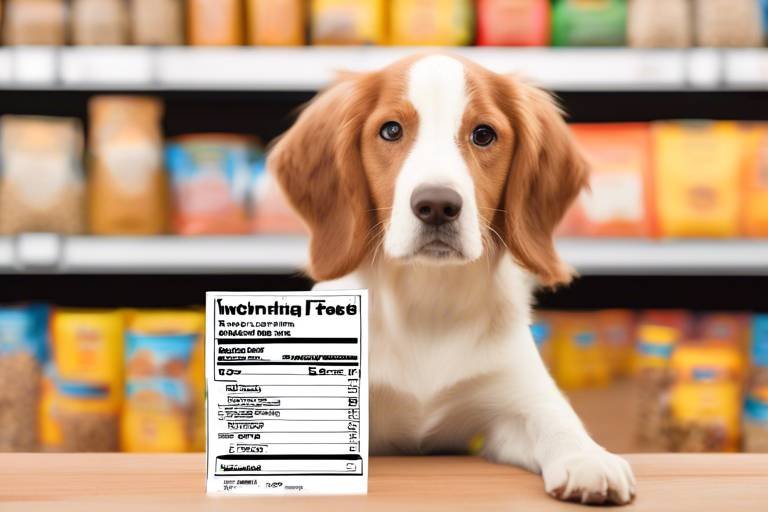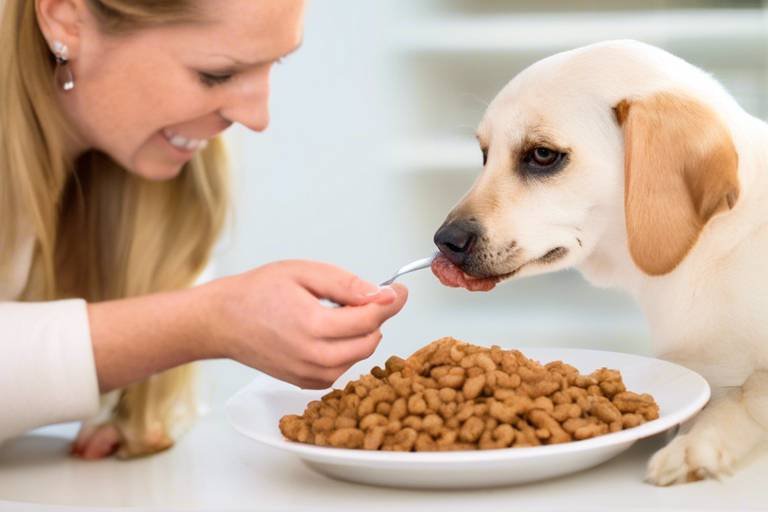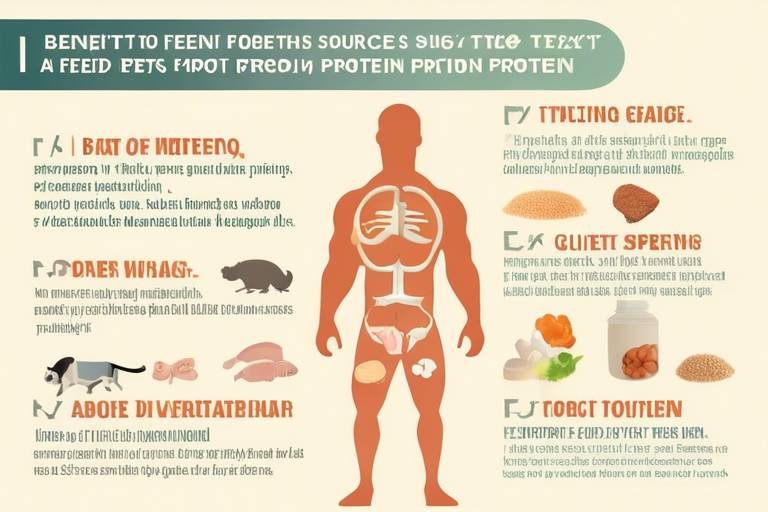The Importance of Electrolytes in Pet Health
As pet owners, we often focus on providing our furry friends with the best food, regular exercise, and plenty of love. However, one crucial aspect of their health that we might overlook is the importance of electrolytes. These tiny, charged minerals play a significant role in maintaining our pets' overall well-being, and understanding their function can make a world of difference in your pet's health. So, what exactly are electrolytes, and why should you care about them? Let's dive in!
Electrolytes are minerals that carry an electric charge, and they are essential for various bodily functions. Think of electrolytes as the tiny messengers that help regulate hydration, nerve function, and muscle contractions. Without them, your pet's body would struggle to perform even the most basic tasks. Common electrolytes include sodium, potassium, calcium, and magnesium. Each of these plays a unique role in your pet's health, making them vital for their overall well-being.
Proper hydration is crucial for pets, and electrolytes are the unsung heroes that help maintain this fluid balance. Imagine trying to fill a bucket with a hole in it; no matter how much water you pour in, it just keeps leaking out. Similarly, if your pet's body lacks electrolytes, it can struggle to absorb and retain water effectively, leading to dehydration. Electrolytes help to draw water into cells and tissues, ensuring that your pet stays hydrated and healthy.
Recognizing the signs of dehydration is essential for pet owners. Here are some common symptoms to watch for:
- Dry gums: Check your pet's gums; if they feel dry or sticky, it could be a sign of dehydration.
- Lethargy: If your pet seems unusually tired or less active than normal, it might be time to check their hydration levels.
- Decreased skin elasticity: Gently pinch the skin on the back of your pet's neck; if it doesn’t spring back quickly, they may be dehydrated.
Being aware of these symptoms can help you identify when your pet needs electrolyte support.
Keeping your pet hydrated is vital, especially in hot weather or after intense exercise. Here are some practical tips:
- Ensure access to fresh water at all times.
- Consider using electrolyte solutions designed for pets, especially after exercise.
- Monitor their water intake and encourage them to drink more if needed.
By keeping a close eye on your pet's hydration levels, you can help prevent serious health issues.
Just like humans, pets can lose electrolytes when they exercise. Whether your dog is chasing a ball or your cat is climbing the curtains, their bodies are working hard and sweating (yes, even pets sweat!). After physical activity, it’s essential to replenish those lost electrolytes to keep your pet healthy and active. A simple electrolyte drink can help restore the balance and prevent any potential health risks.
Electrolyte imbalances can lead to serious health issues in pets. Some common imbalances include:
- Hyponatremia: Low sodium levels can cause confusion, seizures, and even coma.
- Hyperkalemia: Elevated potassium levels can lead to heart problems.
- Hypocalcemia: Low calcium can cause muscle spasms and twitching.
If you notice any unusual behavior in your pet, it’s crucial to seek veterinary assistance to address potential electrolyte imbalances.
Understanding where to find electrolytes is essential for pet owners. Natural sources include:
- Fruits like bananas and watermelon
- Vegetables such as spinach and sweet potatoes
Additionally, there are commercially available electrolyte supplements designed specifically for pets, which can be a great option for ensuring they get enough of these vital minerals.
If you're feeling adventurous, you can create homemade electrolyte solutions using simple ingredients. Here’s a basic recipe:
Ingredients: - 1 liter of water - 1 teaspoon of salt - 1 teaspoon of baking soda - 1 tablespoon of sugar - Optional: A splash of fruit juice for flavor
Mix these ingredients well, and you have a safe and effective solution to support your pet's hydration and health!
Regular veterinary check-ups are crucial for monitoring your pet's electrolyte levels. Your veterinarian can provide professional guidance in managing your pet's health and addressing any concerns related to electrolytes. Remember, it's always better to be safe than sorry when it comes to your furry friend’s health!
Q: How can I tell if my pet needs electrolytes?
A: Look for signs of dehydration, such as dry gums, lethargy, and decreased skin elasticity. If you notice these symptoms, it may be time to consider electrolyte support.
Q: Are there any risks associated with giving my pet electrolytes?
A: While electrolytes are essential, too much of a good thing can be harmful. Always consult your veterinarian before introducing new supplements to your pet's diet.
Q: Can I use human electrolyte drinks for my pet?
A: It's best to use products specifically designed for pets, as human electrolyte drinks may contain ingredients that are harmful to animals.

What Are Electrolytes?
This article explores the critical role electrolytes play in maintaining the health of pets, highlighting their functions, sources, and the consequences of imbalances. Understanding electrolytes is essential for every pet owner.
Electrolytes are minerals that carry an electric charge, and they are absolutely essential for various bodily functions in both humans and animals. Think of electrolytes as the tiny electrical wires that keep everything running smoothly in your pet's body. They help regulate critical processes such as hydration, nerve function, and muscle contractions. Without these vital minerals, your pet could face serious health challenges.
Some of the most common electrolytes include:
- Sodium: Helps maintain fluid balance and is crucial for nerve and muscle function.
- Potassium: Essential for heart function and muscle contractions.
- Calcium: Vital for bone health and muscle function.
- Chloride: Works with sodium to maintain proper fluid balance.
- Magnesium: Important for muscle and nerve function, as well as energy production.
These minerals not only help in keeping your pet hydrated but also play a pivotal role in various biochemical reactions. For instance, when your furry friend runs around, electrolytes help transmit nerve impulses that facilitate movement. If your pet doesn't get enough electrolytes, it could lead to muscle weakness or even cramps, similar to how you might feel after a long workout without hydration.
In essence, electrolytes are the unsung heroes of your pet's health. They ensure that everything from heartbeats to digestion runs like a well-oiled machine. As a pet owner, understanding these vital components can empower you to make informed decisions about your pet's diet and health. This knowledge can be the difference between a healthy, vibrant pet and one that struggles with imbalances that could easily be prevented.
Proper hydration is crucial for pets, and electrolytes play a significant role in maintaining fluid balance. This section discusses how electrolytes help pets absorb and retain water effectively, preventing dehydration.
Recognizing the signs of dehydration is essential for pet owners. This subsection outlines common symptoms such as dry gums, lethargy, and decreased skin elasticity, helping owners identify when their pets need electrolyte support.
This section provides practical tips on hydrating pets, including the use of electrolyte solutions and ensuring access to fresh water. It emphasizes the importance of monitoring hydration levels, especially in hot weather.
Exercise can lead to electrolyte loss in pets. This subsection highlights the importance of replenishing electrolytes after physical activity, ensuring pets remain healthy and active without risking imbalances.
Electrolyte imbalances can lead to serious health issues in pets. This section covers common imbalances, their causes, and potential symptoms, helping owners understand when to seek veterinary assistance.
Understanding where to find electrolytes is essential for pet owners. This section discusses natural sources, such as fruits and vegetables, as well as commercially available electrolyte supplements designed for pets.
Pet owners can create homemade electrolyte solutions using simple ingredients. This subsection provides recipes and guidelines for making safe and effective solutions to support pet hydration and health.
Regular veterinary check-ups are crucial for monitoring your pet's electrolyte levels. This section emphasizes the importance of professional guidance in managing your pet's health and addressing any concerns related to electrolytes.
Q: What are the signs that my pet might be low on electrolytes?
A: Look for symptoms like lethargy, muscle cramps, and irregular heartbeats. If you notice these signs, consult your veterinarian.
Q: Can I give my pet human electrolyte drinks?
A: It's best to avoid human electrolyte drinks as they may contain ingredients harmful to pets. Always opt for pet-specific solutions.
Q: How often should I check my pet’s hydration levels?
A: Especially during hot weather or after exercise, regularly check your pet's hydration by looking at their gums and skin elasticity.

The Role of Electrolytes in Hydration
When it comes to keeping our furry friends healthy, hydration is one of the most critical factors to consider. Just like us, pets need water to survive, but what many pet owners overlook is the role that electrolytes play in this equation. Electrolytes, which include minerals such as sodium, potassium, and chloride, are essential for maintaining the right balance of fluids in your pet's body. They help regulate not just hydration but also nerve function and muscle contractions. Imagine electrolytes as the little messengers that tell your pet's cells when to absorb water and when to release it. Without them, your pet could easily slip into a state of dehydration, which can lead to serious health problems.
So, how do electrolytes work in maintaining hydration? When your pet drinks water, electrolytes facilitate the absorption of that water into the bloodstream. They essentially act like a sponge, soaking up the water and ensuring that it reaches the cells where it's needed most. This process is crucial, especially during hot summer days or after vigorous play sessions. If your pet doesn't have enough electrolytes, their body may struggle to hold onto the water they consume, leading to a vicious cycle of dehydration. It's like trying to fill a bucket with holes; no matter how much water you pour in, it just keeps leaking out!
To put it simply, the balance of electrolytes and fluids in your pet's body is a delicate dance. If one partner stumbles, the whole routine can fall apart. For example, during exercise, pets lose electrolytes through sweat and urine. If they don't replenish these lost electrolytes, their bodies can become out of sync, making them more susceptible to dehydration. That's why it's essential to monitor their hydration levels, particularly after physical activity. You want to ensure that they have access to both fresh water and electrolyte-rich foods or supplements.
In summary, electrolytes are not just important; they are vital for your pet's hydration and overall health. By understanding their role and ensuring your pets have sufficient electrolyte levels, you can help them stay active, healthy, and happy. Remember, a well-hydrated pet is a happy pet!
- What are the signs that my pet is dehydrated? Look for dry gums, lethargy, and decreased skin elasticity.
- How can I ensure my pet gets enough electrolytes? Provide fresh water, consider electrolyte supplements, and offer fruits and vegetables high in water content.
- Can I make homemade electrolyte solutions for my pet? Yes, you can create simple solutions using safe ingredients. Consult your vet for specific recipes.
Signs of Dehydration in Pets
As a pet owner, it's crucial to be vigilant about your furry friend's health, and one of the key indicators to watch for is dehydration. Dehydration can sneak up on our pets, much like a thief in the night, and recognizing its signs is essential to ensure their well-being. So, what should you look for? First off, pay attention to their gums. Healthy gums should appear moist and pink, while dry or sticky gums can indicate dehydration. If you notice your pet's gums looking less than ideal, it might be time to take action.
Another common sign is lethargy. If your usually playful pup or curious kitty seems unusually tired, it could be a red flag. Dehydration can sap their energy, leaving them less enthusiastic about their favorite activities. Additionally, check for skin elasticity. You can do this by gently pinching the skin on the back of their neck. If it doesn't snap back quickly, it may signal dehydration. This simple test can be a game-changer in determining your pet's hydration status.
In some cases, pets may also experience a decrease in appetite, which can be alarming. If your pet suddenly refuses to eat or drink, it's a clear indication that something is off. Furthermore, keep an eye on their urine output. Concentrated, dark urine can be a sign that your pet is not adequately hydrated. To help you further, here’s a quick rundown of the signs of dehydration:
- Dry or sticky gums
- Lethargy and decreased energy
- Poor skin elasticity
- Loss of appetite
- Dark or concentrated urine
Being proactive about these signs can make a world of difference. If you observe any of these symptoms, it's important to act quickly. Hydration is not just about drinking water; it’s about maintaining a balance of electrolytes in their system. Remember, our pets rely on us to keep them healthy and happy, so staying informed and attentive is key to their well-being.
Q: How can I tell if my pet is dehydrated?
A: Look for signs such as dry gums, lethargy, poor skin elasticity, loss of appetite, and dark urine. If you notice any of these, it’s important to rehydrate your pet immediately.
Q: What should I do if my pet is dehydrated?
A: Offer your pet fresh water and consider using electrolyte solutions designed for pets. If symptoms persist, consult your veterinarian for further advice.
Q: Can certain pets be more prone to dehydration?
A: Yes, pets that are very active, those in hot environments, or those with certain health conditions may be more susceptible to dehydration. Always monitor their hydration, especially during exercise or hot weather.
How to Hydrate Your Pet
Keeping your pet hydrated is not just about filling up their water bowl; it’s a vital part of their overall health and well-being. Imagine your pet as a delicate flower that needs just the right amount of water to bloom beautifully. If they don’t get enough, they can wilt, and nobody wants to see that happen! So, how can you ensure your furry friend is getting the hydration they need?
First and foremost, always provide access to fresh, clean water. Pets are like kids—they can be picky! If the water is stale or has a funny taste, they might turn their noses up at it. Consider changing the water at least once a day to keep it appealing. You might also want to invest in a pet water fountain. These fountains keep the water circulating, which can entice your pet to drink more. It’s like having a mini waterfall in your home, and who wouldn’t want that?
In addition to water, you can introduce electrolyte solutions specifically designed for pets. These solutions can help replenish lost minerals, especially after exercise or during hot weather. You can find these at your local pet store or online. Just make sure to read the instructions carefully and consult your vet if you’re unsure about the right dosage for your pet’s size and needs.
Another fun way to hydrate your pet is through ice treats. You can freeze low-sodium broth or even water with bits of their favorite fruits, like blueberries or watermelon, to create tasty and refreshing snacks. Not only do these treats keep them hydrated, but they also add a little excitement to their day! Just remember to keep an eye on the ingredients—some fruits are not safe for pets, so do your homework beforehand.
Monitoring your pet's hydration levels is crucial, especially during hot weather or after vigorous play sessions. Check for signs of dehydration, like dry gums or lethargy. If you notice any of these symptoms, it’s time to step up your hydration game. You can also gently pinch the skin on the back of their neck; if it doesn’t spring back quickly, that’s a sign they may need more fluids.
Lastly, don’t forget to consult your veterinarian regularly. They can provide tailored advice based on your pet’s specific needs and health conditions. Your vet can also recommend the best electrolyte solutions and hydration strategies for your unique pet. After all, you wouldn’t want to navigate this important aspect of pet care alone!
- How can I tell if my pet is dehydrated? Look for signs such as dry gums, lethargy, and decreased skin elasticity. If you’re concerned, consult your veterinarian.
- Can I give my pet human electrolyte drinks? It's best to use products specifically designed for pets, as human electrolyte drinks may contain ingredients that are harmful to animals.
- How much water should my pet drink daily? A general rule of thumb is about 1 ounce of water per pound of body weight, but this can vary based on activity level and diet.
- Are there any fruits that can help hydrate my pet? Yes, fruits like watermelon and cucumber are great for hydration. Just be sure to remove any seeds and consult your vet about safe options.
Electrolytes and Exercise
Exercise is a vital part of keeping our furry friends healthy and happy, but did you know that it can also lead to significant electrolyte loss? Just like us, pets can sweat and lose essential minerals during physical activity, which can lead to imbalances if not properly managed. Imagine your pet running around, tongue out, feeling the wind in their fur. They’re having a blast, but with each leap and bound, they’re losing precious electrolytes that help keep their bodies functioning optimally.
Electrolytes, such as sodium, potassium, and chloride, are crucial for nerve function, muscle contractions, and maintaining fluid balance. When your pet exercises, especially in hot weather, they can easily become dehydrated if these minerals aren't replenished. This can lead to fatigue, muscle cramps, and in severe cases, even heat stroke. Therefore, it’s essential to ensure that your pet is not only staying hydrated but also replenishing those lost electrolytes.
So, how can you help your pet recover after a vigorous play session or a long walk? Here are some tips:
- Provide Fresh Water: Always ensure your pet has access to clean, fresh water before, during, and after exercise.
- Consider Electrolyte Solutions: There are specially formulated electrolyte solutions available for pets. These can be particularly useful after intense exercise.
- Monitor Exercise Intensity: Pay attention to how long and how hard your pet is exercising, especially on hot days. Shorter, more frequent sessions may be better than one long run.
Additionally, keep an eye out for signs of dehydration or electrolyte imbalance. Symptoms like excessive panting, lethargy, or even vomiting can indicate that your pet needs immediate attention. If you notice any of these signs, it’s crucial to hydrate them with a suitable electrolyte solution or consult your veterinarian for further advice.
In conclusion, while exercise is essential for your pet's health, it's equally important to ensure they are replenishing lost electrolytes. By keeping an eye on their hydration and electrolyte levels, you can help them enjoy their playtime safely and energetically. Remember, a happy pet is a healthy pet!
1. How can I tell if my pet is dehydrated?
Look for signs like dry gums, lethargy, decreased skin elasticity, and excessive panting. If you notice these symptoms, it’s time to hydrate!
2. Can I use human electrolyte drinks for my pet?
It's best to avoid human electrolyte drinks as they may contain ingredients that are harmful to pets. Instead, opt for products specifically designed for animals.
3. How often should I give my pet electrolyte solutions?
After intense exercise or on hot days, consider offering an electrolyte solution. Always consult your veterinarian for personalized advice.
4. Are there natural sources of electrolytes for pets?
Yes! Foods like watermelon, cucumbers, and certain broths can provide natural electrolytes. Just ensure they are safe for your specific pet.
Common Electrolyte Imbalances
When it comes to our furry friends, understanding electrolyte imbalances is crucial for their overall health. Just like humans, pets can experience fluctuations in their electrolyte levels, which can lead to a variety of health issues. The most common electrolytes that can become imbalanced in pets include sodium, potassium, calcium, and chloride. Each of these plays a vital role in bodily functions, and an imbalance can create a cascade of problems.
For instance, a deficiency in potassium can result in weakness and lethargy, making your pet seem unusually tired. On the other hand, an excess of sodium can lead to increased thirst and urination, which might be mistaken for other health issues. It's essential to recognize these signs early on to prevent more serious complications.
Here’s a quick overview of some common electrolyte imbalances:
| Electrolyte | Common Causes | Symptoms |
|---|---|---|
| Sodium | Dehydration, excessive salt intake | Increased thirst, confusion, seizures |
| Potassium | Kidney disease, vomiting, diarrhea | Weakness, muscle cramps, irregular heartbeat |
| Calcium | Parathyroid issues, certain cancers | Twitching, seizures, lethargy |
| Chloride | Vomiting, respiratory issues | Dehydration, weakness, metabolic alkalosis |
As a pet owner, being aware of these potential imbalances can help you take proactive steps to ensure your pet remains healthy. For example, if you notice your dog panting excessively or your cat acting unusually thirsty, these could be signs of an electrolyte imbalance. Additionally, factors such as exercise, diet, and even the weather can influence your pet's electrolyte levels. During hot summer days, pets may lose more electrolytes through sweating or panting, making it essential to monitor their hydration closely.
In conclusion, understanding the common electrolyte imbalances that can affect your pets is vital. By being vigilant and attentive to their needs, you can help prevent these imbalances and ensure your furry companions lead happy, healthy lives. If you suspect your pet may be experiencing any symptoms related to electrolyte imbalances, don't hesitate to consult your veterinarian for guidance and support.
- What are the signs of an electrolyte imbalance in pets? Common signs include lethargy, weakness, increased thirst, and changes in urination.
- How can I prevent electrolyte imbalances in my pet? Ensure your pet has access to fresh water, maintain a balanced diet, and monitor their activity levels, especially in hot weather.
- Can I give my pet human electrolyte drinks? It's not advisable to give human electrolyte drinks to pets without consulting a veterinarian, as some ingredients may be harmful.
- When should I consult a veterinarian? If you notice any unusual behavior or symptoms that concern you, it's always best to seek professional advice.
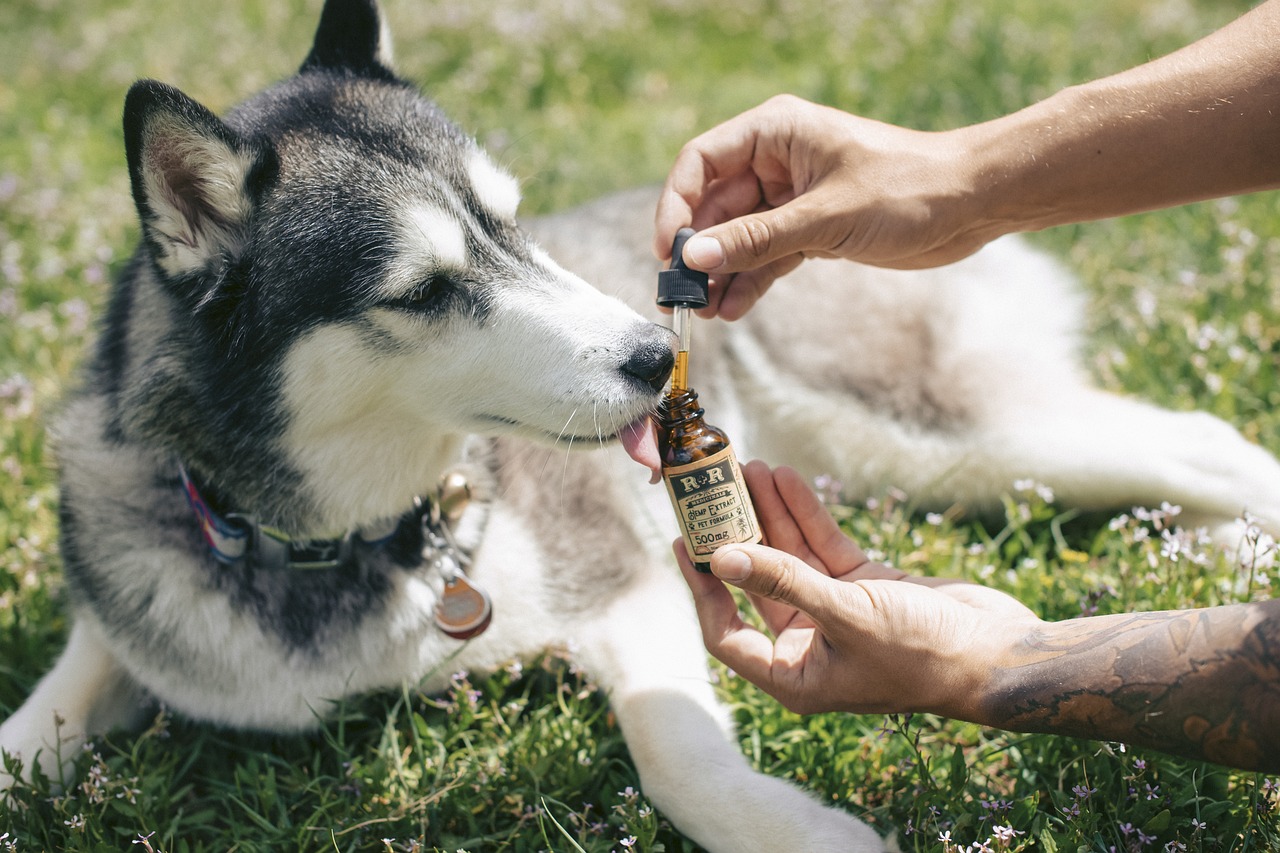
Sources of Electrolytes for Pets
Understanding where to find electrolytes is essential for every pet owner. Just like humans, pets require a balanced supply of these vital minerals to maintain their health and vitality. Electrolytes can be found in a variety of natural foods as well as commercially available supplements. By incorporating the right sources into your pet's diet, you can help ensure they receive the necessary nutrients to thrive.
Natural sources of electrolytes include a range of fruits and vegetables that not only provide hydration but also deliver essential minerals. For instance, bananas are rich in potassium, while watermelon contains both potassium and magnesium. These foods can be a delightful treat for your pet, offering hydration and nutrition in one bite. Here are some other natural sources:
- Potassium: Found in sweet potatoes, spinach, and avocados.
- Sodium: Present in small amounts in meats and fish.
- Calcium: Available in dairy products and leafy greens.
In addition to these natural sources, there are also a variety of commercially available electrolyte supplements specifically designed for pets. These supplements come in various forms, including powders, liquids, and treats. They can be particularly useful during hot weather or after vigorous exercise, ensuring that your pet can replenish lost electrolytes quickly and effectively.
When choosing a supplement, it’s important to look for products that are specifically formulated for pets. Human electrolyte solutions may contain ingredients that are harmful to animals, such as xylitol or high sugar content. Always consult with your veterinarian before introducing any new supplement into your pet's diet to ensure it meets their specific health needs.
Moreover, some pet owners may find it beneficial to create homemade electrolyte solutions using simple ingredients. A basic recipe can include water, a pinch of salt, and a bit of sugar, which can help restore electrolyte balance in pets that are dehydrated. However, it’s crucial to monitor your pet’s response to any homemade solutions and to seek veterinary advice if you have concerns.
In summary, ensuring that your pet receives adequate electrolyte intake can be achieved through a combination of natural foods and commercial supplements. By being proactive and informed about your pet's dietary needs, you can help them stay hydrated and healthy, avoiding the potential risks associated with electrolyte imbalances.
Q: What are the signs that my pet may need more electrolytes?
A: Common signs include lethargy, dry gums, decreased skin elasticity, and excessive panting. If you notice any of these symptoms, consider consulting your veterinarian.
Q: Can I give my pet human electrolyte drinks?
A: No, many human electrolyte drinks contain ingredients that can be harmful to pets. Always opt for pet-specific products or consult your veterinarian for safe alternatives.
Q: How often should I check my pet's electrolyte levels?
A: Regular check-ups with your veterinarian can help monitor your pet’s health, including electrolyte levels, especially if they are active or have underlying health issues.
Q: Are there any risks associated with electrolyte supplements?
A: Yes, over-supplementation can lead to imbalances and health issues. Always follow the recommended dosages and consult your veterinarian for guidance.
Homemade Electrolyte Solutions
Creating for your pets can be a simple and effective way to ensure they stay hydrated and healthy, especially during hot weather or after vigorous exercise. The beauty of preparing these solutions at home is that you can use natural ingredients that are safe and beneficial for your furry friends. Here’s a basic recipe that you can whip up in no time!
To make a basic electrolyte solution, you will need:
- 1 liter of water
- 1/2 teaspoon of salt (preferably sea salt)
- 1/2 teaspoon of baking soda
- 2 tablespoons of sugar or honey (for taste and energy)
- Optional: 1/2 cup of coconut water (for added potassium)
Start by mixing all the ingredients in a bowl or pitcher until they are fully dissolved. This solution can be served to your pet in a bowl or added to their water supply. Just make sure to monitor your pet's intake, as too much of any supplement can cause imbalances.
It's important to note that while these homemade solutions can help with hydration, they should not replace regular veterinary care or be used as a long-term solution for electrolyte imbalances. Always consult with your veterinarian before introducing any new remedies to your pet's diet, especially if they have underlying health conditions or are on medication.
In addition to the basic recipe, you can also experiment with other natural ingredients that are safe for pets. For example, adding a bit of fruit juice (like watermelon or apple) can enhance flavor and provide additional nutrients. Just ensure that any juice used is free of added sugars and artificial ingredients.
Lastly, keep in mind that the best way to prevent dehydration is to ensure your pet has constant access to fresh, clean water. Homemade electrolyte solutions can be a great supplement during times of need, but they should complement, not replace, your pet's regular hydration habits.
Q: How often can I give my pet homemade electrolyte solutions?
A: You can offer homemade electrolyte solutions as needed, especially during hot weather or after exercise. However, it should not be a daily routine without consulting your veterinarian.
Q: Can I use this solution for all types of pets?
A: While this solution is generally safe for dogs and cats, it's always best to consult with your veterinarian to ensure it suits your specific pet's needs.
Q: What are the signs that my pet needs electrolytes?
A: Signs of dehydration include dry gums, lethargy, decreased skin elasticity, and excessive panting. If you notice these symptoms, consider offering an electrolyte solution and consult your vet.
Consulting Your Veterinarian
When it comes to the health and well-being of your furry companions, is an absolute must. Just like you wouldn’t ignore a persistent headache or unusual fatigue, your pet’s health deserves the same level of attention. Regular veterinary visits are crucial for monitoring your pet's electrolyte levels, which can fluctuate due to various factors such as diet, exercise, and underlying health conditions. Your vet is your pet's best ally, equipped with the knowledge and tools to assess their unique needs.
One of the key benefits of consulting your veterinarian is their ability to perform comprehensive health evaluations. They can conduct blood tests to measure electrolyte levels and identify any imbalances that could lead to serious health issues. For instance, an imbalance in sodium or potassium could indicate dehydration or kidney problems, which might not be immediately obvious to a pet owner. By catching these issues early, you can prevent more severe health complications down the line.
Moreover, your vet can provide personalized recommendations tailored specifically to your pet’s lifestyle and health status. This means they can suggest appropriate dietary adjustments, supplements, or hydration strategies that suit your pet's individual needs. For example, if your dog is particularly active or lives in a hot climate, your veterinarian might recommend specific electrolyte-rich foods or supplements to ensure they stay hydrated and balanced.
It’s also essential to keep an open line of communication with your veterinarian. If you notice any signs of dehydration or other health concerns, don’t hesitate to reach out. Some common symptoms to watch for include:
- Dry or sticky gums
- Excessive thirst
- Loss of appetite
- Unusual lethargy or weakness
- Decreased skin elasticity
By being proactive and consulting your veterinarian, you’re taking a significant step towards ensuring your pet’s health. They can help you navigate any concerns regarding electrolytes and hydration, making sure your beloved pet stays happy and healthy.
In conclusion, don't underestimate the importance of regular veterinary check-ups. Your veterinarian is not just a healthcare provider; they are a partner in your pet's health journey. By working together, you can ensure that your pet thrives, enjoying a vibrant and active life.
Here are some common questions pet owners have regarding electrolytes and veterinary consultations:
- How often should I take my pet to the vet for check-ups? It's generally recommended to have annual check-ups, but more frequent visits may be necessary for older pets or those with health issues.
- What are the signs that my pet may need electrolyte support? Look out for symptoms like excessive thirst, dry gums, lethargy, and changes in appetite.
- Can I give my pet human electrolyte solutions? It's best to consult your vet before giving any human products to pets, as some ingredients can be harmful.
- Are there specific foods that can help maintain my pet's electrolyte balance? Yes, fruits and vegetables like watermelon and cucumber can be beneficial, but consult your vet for tailored advice.
Frequently Asked Questions
- What are electrolytes and why are they important for my pet?
Electrolytes are essential minerals that carry an electric charge, playing a critical role in various bodily functions. They help regulate hydration, nerve function, and muscle contractions, which are vital for your pet's overall health and well-being.
- How can I tell if my pet is dehydrated?
Signs of dehydration in pets can include dry gums, lethargy, decreased skin elasticity, and excessive thirst. If you notice any of these symptoms, it’s important to address hydration needs promptly.
- What are some effective ways to hydrate my pet?
To keep your pet hydrated, ensure they have constant access to fresh water. You can also use electrolyte solutions specifically designed for pets or offer hydrating foods like fruits and vegetables.
- Why do pets need electrolytes after exercise?
Exercise can lead to significant electrolyte loss, especially in hot weather. Replenishing electrolytes after physical activity helps maintain your pet's fluid balance and prevents health issues related to imbalances.
- What are common electrolyte imbalances in pets?
Common electrolyte imbalances include low sodium or potassium levels, which can result from various factors like illness, excessive vomiting, or diarrhea. Symptoms may include weakness, confusion, and muscle cramps.
- What are some natural sources of electrolytes for pets?
Natural sources of electrolytes for pets include fruits and vegetables like bananas, watermelon, and sweet potatoes. These can be healthy additions to their diet to help maintain electrolyte balance.
- Can I make homemade electrolyte solutions for my pet?
Yes! You can create homemade electrolyte solutions using simple ingredients like water, salt, and sugar. However, it's crucial to follow safe recipes and consult your veterinarian for guidance.
- When should I consult my veterinarian about my pet's electrolytes?
Regular veterinary check-ups are essential for monitoring your pet's electrolyte levels. If you notice any signs of imbalance or have concerns about your pet's health, don't hesitate to reach out to your vet for professional advice.

